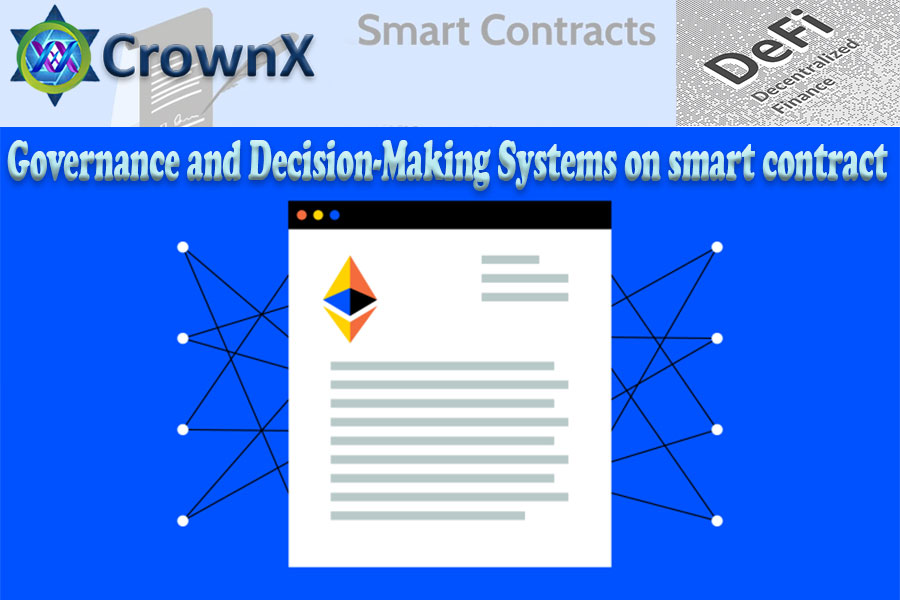
Governance and decision-making systems on smart contracts refer to the mechanisms and processes that enable participants to collectively make decisions and manage the operation of smart contracts. Smart contracts are self-executing contracts with the terms of the agreement directly written into code. Governance in this context involves determining how decisions about the smart contract's functionality, upgrades, and parameters are made.
Here is an explanation of governance and decision-making systems on smart contracts:
Protocol Governance: Protocol governance on smart contracts pertains to decisions regarding the rules and parameters embedded in the smart contract code. This includes determining the contract's initial design, functionality, and constraints. Participants may discuss and decide on matters such as contract logic, security measures, data validation rules, and dispute resolution mechanisms. Protocol governance typically occurs during the initial development and deployment stages of the smart contract.
Upgrades and Changes: As technology and requirements evolve, it may be necessary to modify or upgrade smart contracts. Governance systems provide a framework for decision-making regarding contract upgrades. Participants may propose changes, improvements, or bug fixes and engage in discussions on the implications of these modifications. The decision-making process may involve voting mechanisms, consensus among stakeholders, or specific governance protocols defined within the smart contract or an associated decentralized autonomous organization (DAO).
Consensus Mechanisms: Smart contracts can leverage consensus mechanisms to enable decision-making among participants. Depending on the specific blockchain platform or framework used, consensus mechanisms such as proof-of-stake (PoS) or delegated proof-of-stake (DPoS) can be employed to determine voting power or decision-making authority. Consensus-based decision-making ensures that decisions reflect the majority or the consensus of the participants.
Token Governance: Smart contracts often have associated tokens that provide certain rights or functions within the contract ecosystem. Token governance involves decisions related to the management, distribution, and use of these tokens. Participants may propose and vote on matters such as token issuance, token economics, token utility, or token distribution mechanisms. Token governance mechanisms enable token holders to have a say in the decision-making process, aligning their interests with the development and success of the smart contract.
Decentralized Autonomous Organizations (DAOs): DAOs are entities governed by smart contracts and operate without a central authority. They allow for decentralized decision-making and governance. DAOs can enable participants to vote on proposals, allocate resources, and manage the operations of the smart contract. DAOs are designed to enhance transparency, inclusiveness, and the alignment of incentives among stakeholders.
Off-chain Governance: In addition to on-chain governance mechanisms, off-chain governance processes may also play a role in decision-making for smart contracts. Off-chain discussions, forums, or dedicated governance platforms can be used for deliberations, proposals, and debates that inform the decision-making process. Off-chain governance provides a more flexible and accessible avenue for participants to contribute their opinions and expertise.
Governance and decision-making systems on smart contracts are designed to ensure transparency, inclusiveness, and the collective management of the contract's functionality and evolution. These systems enable participants to have a voice in shaping the contract's parameters, upgrades, and token-related decisions, while adhering to the predefined rules and logic encoded within the smart contract's code.